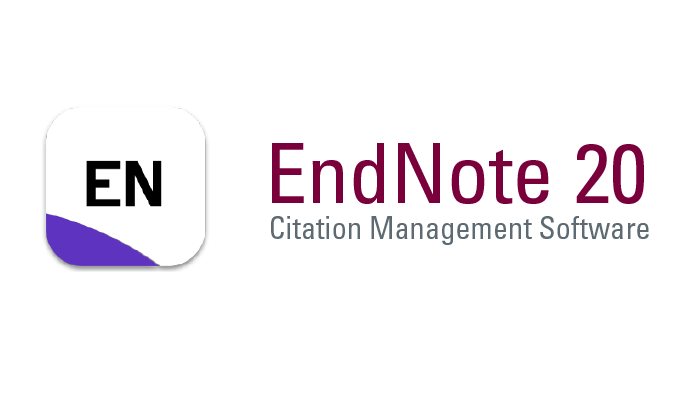ANALISIS HOLISTIK MOTIVASI KERJA GURU TK
DOI:
https://doi.org/10.47887/amd.v6i1.194Keywords:
Teacher Motivation, Intrinsic Factors, Extrinsic FactorsAbstract
This study aims to comprehensively analyze the intrinsic and extrinsic factors influencing the work motivation of teachers at TK IT Bazla, an integrated Islamic early childhood education institution in Indonesia. Employing a phenomenological approach, the research explores teachers' experiences and perceptions regarding their professional motivation. Data were collected through in-depth interviews with six participants and analyzed qualitatively. The findings reveal that intrinsic motivation is primarily driven by love for children, a strong belief in the institution's mission, and a desire for personal growth. On the other hand, extrinsic factors such as support from leadership, colleagues, and parents significantly enhance motivation. However, challenges in dealing with parents were identified as a key obstacle. This study underscores the importance of a holistic approach to fostering teacher motivation by integrating internal drive with a supportive work environment. The results contribute to both theoretical understanding and practical strategies for improving teacher performance and well-being, ultimately enhancing the quality of early childhood education at TK IT Bazla.
References
Barni, D., Danioni, F., & Benevene, P. (2019). Teachers’ self-efficacy: The role of personal values and motivations for teaching. Frontiers in Psychology, 10(July), 1–7. https://doi.org/10.3389/fpsyg.2019.01645 DOI: https://doi.org/10.3389/fpsyg.2019.01645
Börü, N. (2018). The factors affecting teacher-motivation. International Journal of Instruction, 11(4), 761–776. https://doi.org/10.12973/iji.2018.11448a DOI: https://doi.org/10.12973/iji.2018.11448a
Creswell, J. W. (2016). Research Design: Pendekatan Metode Kualitatif, Kuantitatif, dan Campuran (Edisi Keem). Pustaka Belajar.
Durksen, T. L., Klassen, R. M., & Daniels, L. M. (2017). Motivation and collaboration: The keys to a developmental framework for teachers’ professional learning. Teaching and Teacher Education, 67, 53–66. https://doi.org/10.1016/j.tate.2017.05.011 DOI: https://doi.org/10.1016/j.tate.2017.05.011
Han, J., & Yin, H. (2016). Teacher motivation: Definition, research development and implications for teachers. Cogent Education, 3(1), 1–18. https://doi.org/10.1080/2331186X.2016.1217819 DOI: https://doi.org/10.1080/2331186X.2016.1217819
Leedy, P. D., & Ormrod, J. E. (2001). Practical research: Planning and research. NJ: Merril.
Maisyaroh, Imron, A., Burhanuddin, Juharyanto, Satria, R., & Puspitaningtyas, I. (2019). Implementation of Situational Leadership in Educational Organizations. 4th International Conference on Education and Management (CoEMA 2019). Advances in Social Science, Education and Humanities Research., 381, 73–77. DOI: https://doi.org/10.2991/coema-19.2019.17
Patton, M. Q. (2014). Nitel araştırma ve değerlendirme yöntemleri. Ankara: Pegem Akademi.
Puspitaningtyas, I., Satria, R., Maisyaroh, & Sumarsono, R. B. (2019). Implementasi Kepemimpinan Pembelajaran Di Satuan Pendidikan. Seminar Nasional Revitalisasi Manajemen Pendidikan Anak Usia Dini (PAUD) Di Era Revolusi Industri 4.0, September, 126–134.
Rasheed, M. I., Humayon, A. A., Awan, U., & Ahmed, A. ud D. (2016). Factors affecting teachers’ motivation: An HRM challenge for public sector higher educational institutions of Pakistan (HEIs). International Journal of Educational Management, 30(1), 101–114. https://doi.org/10.1108/IJEM-04-2014-0057 DOI: https://doi.org/10.1108/IJEM-04-2014-0057
Ryan, R. M., & Deci, E. L. (2020). Intrinsic and extrinsic motivation from a self-determination theory perspective: Definitions, theory, practices, and future directions. Contemporary Educational Psychology, 61(xxxx), 1–11. https://doi.org/10.1016/j.cedpsych.2020.101860 DOI: https://doi.org/10.1016/j.cedpsych.2020.101860
Satria, R., & Mustiningsih. (2019). Supervisor in era Industrial Revolution 4.0 and Society 5.0. 5th International Conference on Education and Technology (ICET 2019). Advances in Social Science, Education and Humanities Research, Volume 382, 596–601. https://doi.org/doi.org/10.2991/icet-19.2019.147
Shahbana, E. B., Satria, R., & Pertiwi, A. K. (2020). Strategi Parenting dalam Menerapkan Layanan Holistik Integratif di Lembaga Pendidikan Anak Usia Dini (PAUD). Prosiding Web-Seminar Nasional (Webinar) Pendidikan, 169–176.
Zhang, X., Admiraal, W., & Saab, N. (2021). Teachers’ motivation to participate in continuous professional development: relationship with factors at the personal and school level. Journal of Education for Teaching, 47(5), 1–18. https://doi.org/10.1080/02607476.2021.1942804 DOI: https://doi.org/10.1080/02607476.2021.1942804
Downloads
Published
How to Cite
Issue
Section
License
Copyright (c) 2025 Rachmat Satria, Al Fadil Muhammad, Nurul Faradila, Inayatillah Muslim, Aurellia Nailah Putri

This work is licensed under a Creative Commons Attribution-ShareAlike 4.0 International License.
Authors retain copyright and grant the journal right of first publication and this work is licensed under a Creative Commons Attribution-ShareAlike 4.0 that allows others to share the work with an acknowledgement of the works authorship and initial publication in this journal.
All articles in this journal may be disseminated by listing valid sources and the title of the article should not be omitted. The content of the article is liable to the author.
Authors are able to enter into separate, additional contractual arrangements for the non-exclusive distribution of the journal's published version of the work (e.g., post it to an institutional repository or publish it in a book), with an acknowledgment of its initial publication in this journal.
Authors are permitted and encouraged to post their work online (e.g., in institutional repositories or on their website) prior to and during the submission process, as it can lead to productive exchanges, as well as earlier and greater citation of published work.
In the dissemination of articles by the author must declare the Al-Madaris Jurnal Pendidikan dan Studi Keislaman as the first party to publish the article.














